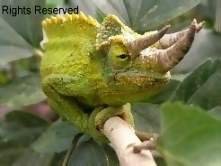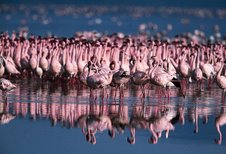They have maintained a military and cultural alliance with the Rendille, largely in response to pressures from the expanding Oromo (Borana) since the 16th century. Generally between five and ten families set up encampments for five weeks and then move on to new pastures. Adult men care for the grazing cattle which are the major source of livelihood. Women are in charge of maintaining the portable huts, milking cows, obtaining water and gathering firewood. Marriage is a unique series of elaborate ritual. The marriage is concluded when a bull enters a hut guarded by the bride's mother, and is killed. Fertility is a very high value for the Samburu. A childless woman will be ridiculed, even by children.
Duties of boys and girls are clearly delineated. Initiation is done in age grades of about five years, with the new "class" of boys becoming warriors, or morans. (il-murran) which involves training in adult responsibilities and circumcision for boys and clitoridectomy for girls. The moran status involves two stages, junior and senior. Samburu are very independent and egalitarian. Community decisions are normally made by men (senior elders or both senior and junior elders but not morani), often under a tree designated as a "council" meeting site.
The Samburu love to sing and dance, but traditionally used no instruments, even drums. They have dances for various occasions of life. Their own traditional religion is based on acknowledgment of the Creator God, whom they call Nkai, as do other Maa-speaking peoples. They believe in charms and have traditional ritual for fertility, protection, healing and other needs. The Samburu have many traditions and ceremonies for every occasion including the killing of a sheep for the birth of a baby; initiation or graduation rites as they prepare to become adults and marriage ceremonies which may occur after the initiation ceremony.
Girls generally marry between the ages of twelve and fifteen and boys usually, in their mid twenties. Boys become murrani or junior warriors for about five years and then go through another ceremony to become a senior warrior. Samburu girls hope to become "beaded" by their favorite warrior. If the young man likes the girl, he will give her layers of necklaces and pay a bride. The Samburu wear their traditional attire which is a bright red material worn like a skirt.
They also wear multi-beaded necklaces, bracelets and earrings. Moran is a term used in both Maasai and Samburu community to refer to a warrior. Like the Maasai, the Samburu also mix blood and milk to make their traditional drink.
PKP- Kenya safari desk
Natural Track Safaris









No comments:
Post a Comment